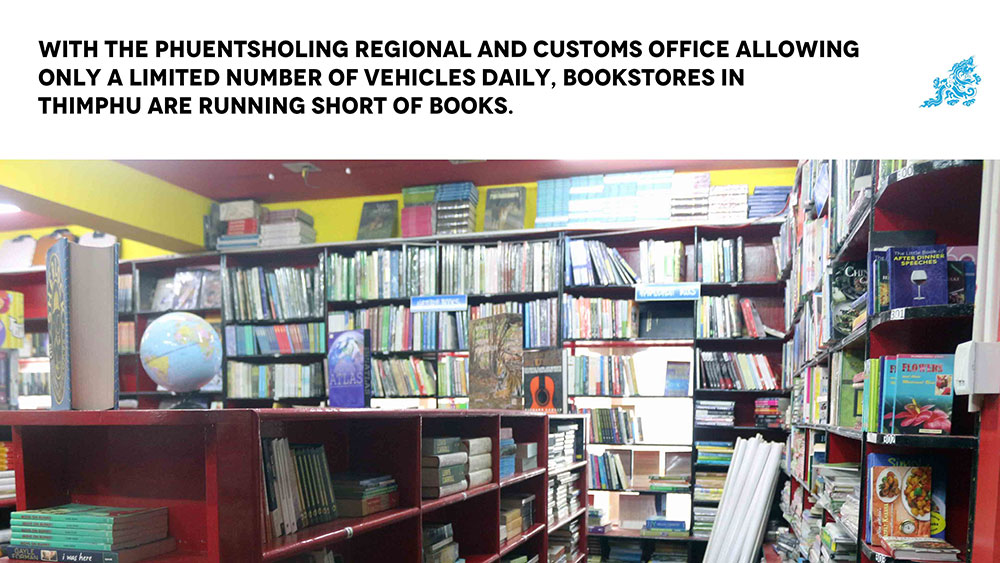Bookshelves are almost empty; it has been so for months.
New releases or best-selling books are out of reach. The few bookstores in Thimphu are running short of books. If the situation persists, the owners fear that they might run out of business.
DSB Books’ general manager, Deebesh Bhattarai, said that the lockdown in India delayed the order.
“It takes three to four months to receive the orders now,” he said.
Deebesh Bhattarai said that Phuentsholing regional and customs office allowed only 100 vehicles a day, out of which 70 to 80 carry essential goods. “If the vehicles authorised for transportation of essential goods were full, then non-essential goods such as books and stationery were not registered.”
Deebesh Bhattarai said that the number of visitors decreased drastically in the last 15 months from 10 initially to three or five today.
However, he said that people were inquiring about the availability of books through their online platforms.
Trying to bring new books becomes risky because they had to pay to their dealers before they receive the consignment, he said. “The suppliers give us three months to make the payment and, it takes that much to get the books to Jaigon.”
Bringing in children’s book is another challenge for the bookstore. Since the children’s book were imported from other countries, excluding India, it was difficult.
“What is available from India is not preferred here,” Deebesh Bhattarai said.
According to a study conducted by the UN Education, Scientific and Cultural Organisation (UNESCO), even before the pandemic, the number of children lacking basic reading skills was on a downward curve.
“In 2020, instead of 460 million (M) children experiencing reading difficulties, that number jumped to 584M. The rise of more than 20 percent wiped out two decades of education gains.”
A bookshop owner in Thimphu said that the sale had gone down drastically. “If the pandemic continues for long and if we cannot bring in new books, then we will be out of business, the owner said, adding that there was nothing one could do.
“Bookstore is not a profit-making business. Now because of the pandemic, we barely make enough,” the owner said.
Another bookstore in Thimphu, Trinkets and Bookworld, receives orders on their social media page from other dzongkhags.
Naramaya Gurung, a staff member, said: “We post about the books available online and send them through Bhutan Post.”
She said that the number of visitors did not dwindle much in the past few months.
Bookstore owners feel that the increasing popularity of e-books also attributed to the decrease in visitors.
Sonam Tshoki, an avid reader, said that she was borrowing and exchanging books with her friends.
“Bookstores do not have many choices and ordering from India takes forever,” she said.
Another reader said that books should be on the list of essential items.
She said that considering the poor reading habits of the country, books are not considered essential. “If the government of the day considers it as non-essential, I don’t know where the country is heading.”
Many readers switch to e-books and more would as the country journeys forwards, she said. “But there should be a proper international payment gateway to make payments and, policymakers should consider tax reduction on e-book related gadgets.”
By Chhimi Dema
Edited by Jigme Wangchuk


